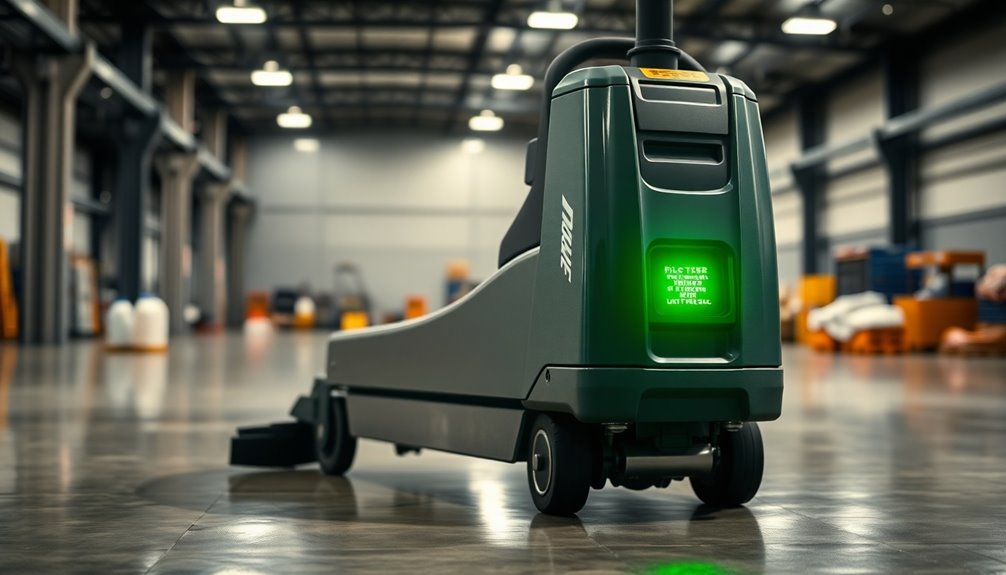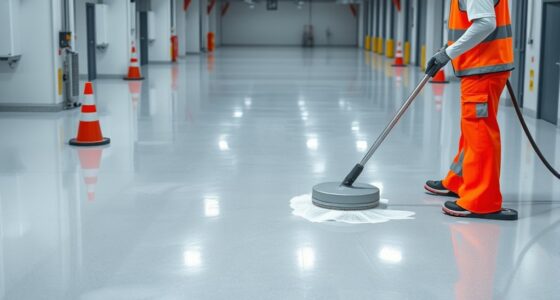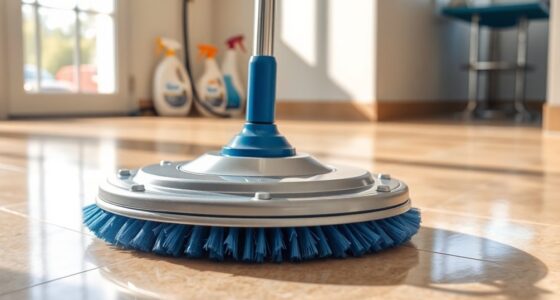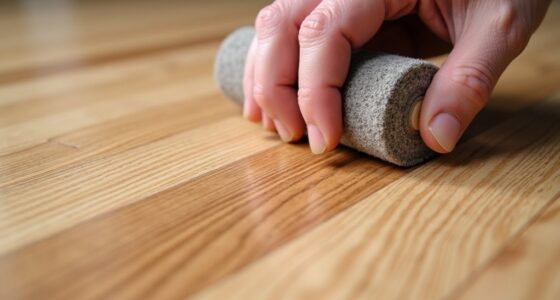Floor scrubber batteries typically last anywhere from 300 to 2,000 charge cycles, depending on the type and your usage. Lead-acid batteries usually give you about 750 cycles, while LiFePO4 batteries can last up to 2,000 cycles. Your daily cleaning habits play a big role in battery life, so it's essential to consider how often you use the scrubber. Stick around to discover more about different battery types and maintenance tips that can help extend their lifespan.
Key Takeaways
- Floor scrubber batteries typically last between 300 to 2,000 charge cycles, depending on the battery type used.
- Lead-acid batteries last around 750 charge cycles, equating to about 18 months to 2 years of use.
- LiFePO4 batteries can last up to 2,000 charge cycles, providing several years of reliable performance.
- Battery longevity is influenced by usage patterns, with heavy daily use leading to faster degradation.
- Regular maintenance and optimal storage conditions can significantly extend the lifespan of floor scrubber batteries.
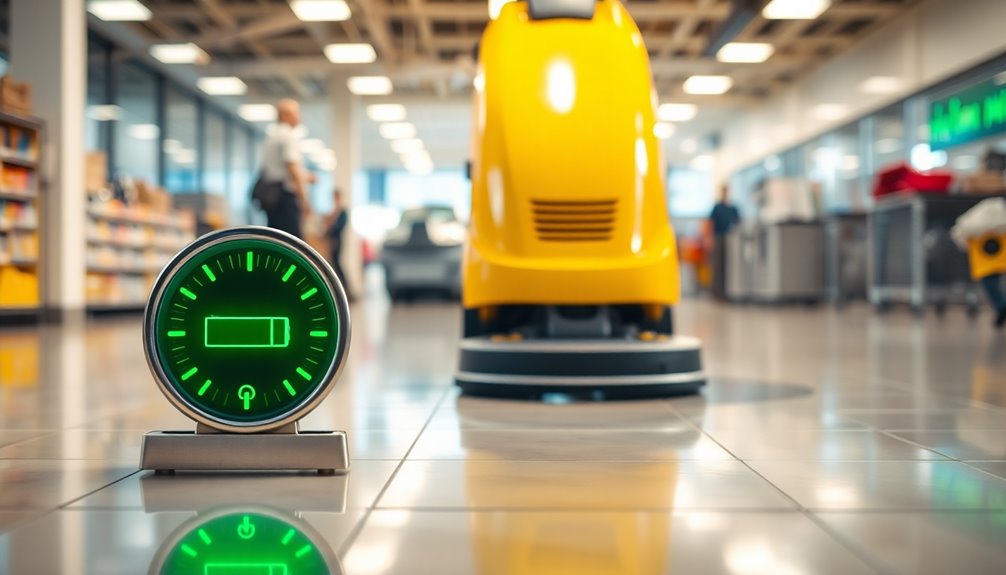
When you're relying on a floor scrubber for your cleaning tasks, understanding how long the batteries last is crucial for planning and efficiency. The longevity of floor scrubber batteries can vary significantly, typically ranging from 300 to 2,000 charge cycles, depending on the type of battery you choose. Knowing this can help you decide which battery fits your specific needs, especially in an industrial space where cleaning performance is paramount.
Lead-acid batteries, one of the most common types for floor scrubbers, generally last around 750 charge cycles. This translates to approximately 18 months to 2 years of use, depending on your cleaning routines. While these batteries are cost-effective upfront, their shorter lifespan means you may find yourself replacing them more frequently, which can add up over time. If you're using your scrubber for heavy cleaning tasks, you might want to reconsider your choice of battery.
On the other hand, LiFePO4 batteries offer a much longer lifespan, lasting up to 2,000 charge cycles. This means they can potentially serve you for several years, even under consistent use. The initial investment may be higher, but the long-term savings and reduced downtime make them an attractive option. With the right battery, you can maximize your cleaning performance without the worry of frequent replacements.
However, battery life isn't solely determined by the type of battery you choose. Your usage patterns play a significant role in how long the batteries will last. If you're pushing your floor scrubber to its limits every day, you can expect more rapid degradation. Therefore, it's essential to balance your cleaning needs with the type of battery you're using.
To extend the life of your floor scrubber batteries, regular maintenance and proper charging practices are vital. Keeping the batteries clean and ensuring they're charged correctly can significantly enhance their longevity.
Also, optimal storage conditions, like keeping them in a climate-controlled environment, can prevent unnecessary wear and tear.
Frequently Asked Questions
How Long Should Floor Scrubber Batteries Last?
When you think about the lifespan of floor scrubber batteries, consider several factors.
Typically, these batteries can last anywhere from 300 to 2,000 charge cycles, depending on the type. Lead-acid batteries might only last 300-500 cycles, while lithium-ion options can reach up to 2,000.
Regular maintenance, proper charging, and your usage patterns play a crucial role in extending their life, so make sure to keep an eye on their condition for optimal performance.
Why Is My Floor Scrubber Battery Not Charging?
If your floor scrubber battery isn't charging, it's time to roll up your sleeves and dig in.
Start by checking for loose connections or tripped circuit breakers, as they often cause issues. Inspect connectors for damage and ensure your charger's working.
If it's an older battery, it might be nearing the end of its lifespan. Keeping terminals clean and fluid levels checked can prevent future headaches and keep everything running smoothly.
What Is the Life Expectancy of a Floor Scrubber?
When you consider the life expectancy of a floor scrubber, it usually ranges from 5 to 10 years, depending on usage and maintenance.
If you use it frequently and take good care of it—like scheduling regular inspections and keeping it clean—you can maximize its lifespan.
Also, environmental factors, such as temperature and humidity, play a role, so try to store it in cooler, dry conditions for better longevity.
How Often Should Floor Scrubbers Be Recharged?
Imagine the frustration of your floor scrubber dying mid-job—it's a nightmare, right?
To avoid that chaos, you should recharge your scrubber after every cleaning cycle. Regular recharging not only keeps your machine ready for action but also enhances its performance and longevity.
Make it a habit to plug it in once you're done, ensuring it's always powered up for your next cleaning session.
Trust me, your future self will thank you!
Conclusion
In the world of floor scrubbers, battery life can feel like a race against time. While some batteries might last a mere few hours, others can power through an entire shift with ease. Just as a well-maintained scrubber shines brighter, so too does a properly cared-for battery stand the test of time. Ultimately, investing in quality and maintenance not only enhances efficiency but also ensures your cleaning tasks are completed without interruption—because every minute counts in your busy day.
